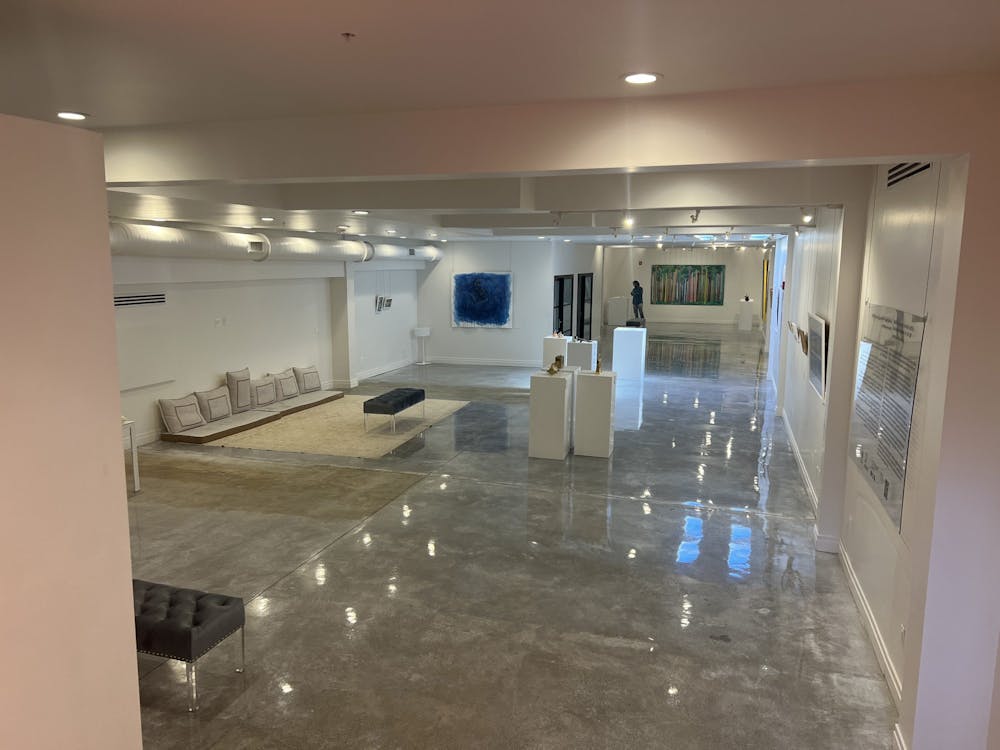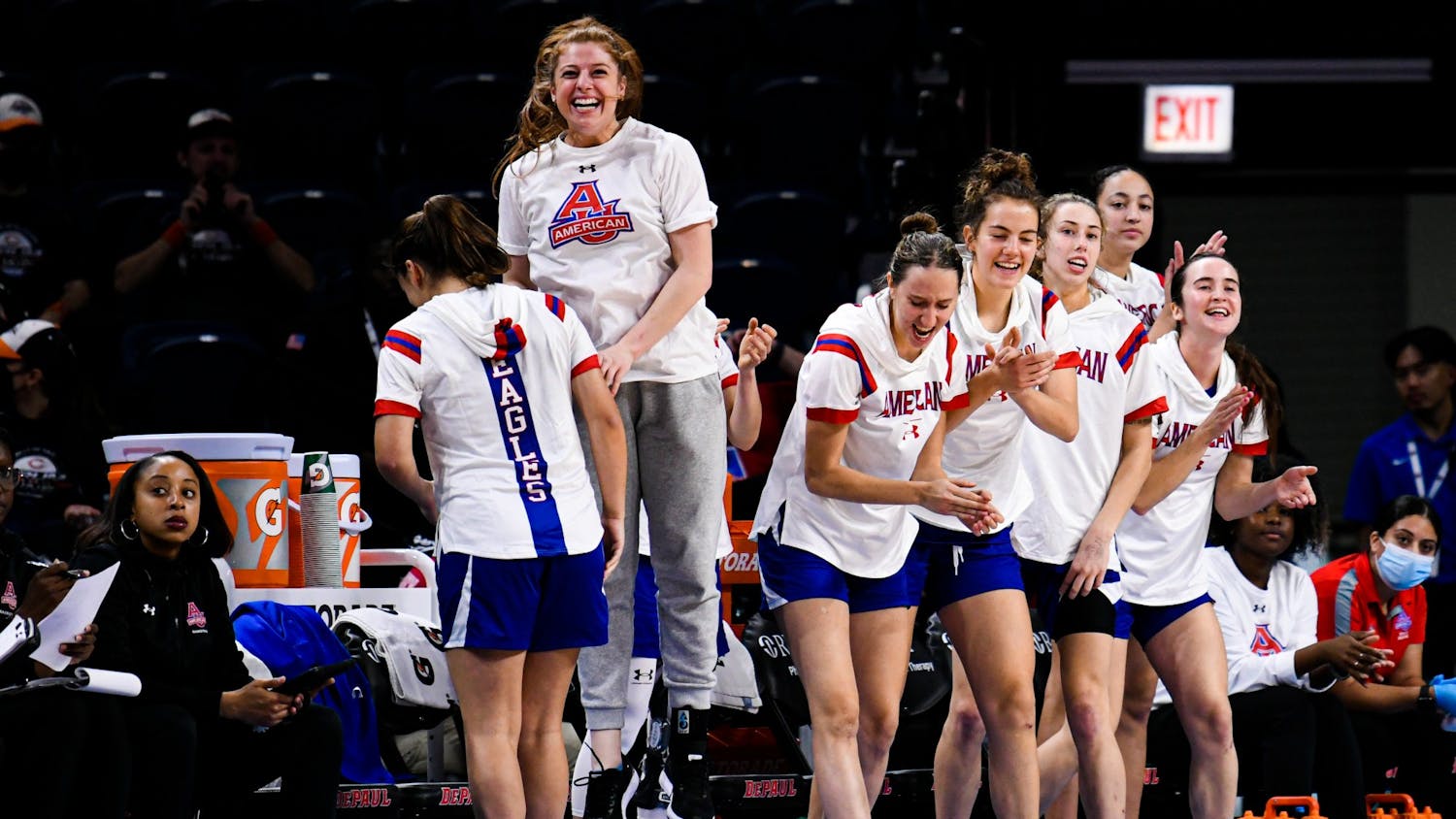In celebration of Emirati Women’s Day, the United Arab Emirates Embassy presented “While the Coffee Grounds Settle: Stories from the UAE,” from Sept. 23 to Oct. 14. The exhibit brought the narratives of Middle Eastern women to the forefront.
Curated by Dirwaza Curatorial Lab, an Abu Dhabi-based creative hub, the work of 27 female artists from the UAE were on display. The artists embodied a wide range of nationalities, generations and experiences.
Located in the Fathom Gallery of Georgetown, the exhibit explored how spaces, customs and traditions facilitate community-building among women. The Majilis — the Arabic word for “sitting room” — is a central focus of the exhibit.
“[The] exhibition examines how women from different communities in the UAE have empowered themselves throughout generations,” said curator Anita Shishani. “Specifically through the lens of community gatherings within the home space.”
According to Tim Hancer, a representative of the exhibit, it is tradition for women to be in a sitting room and wait for the coffee grounds of Turkish coffee to settle at the bottom of a cup. They then turn it over, and use the shape formed by the coffee grounds to predict one’s future. The title of the exhibition echoed this tradition.
Aside from the sitting room, this collection of art acknowledged additional practices that are meaningful to women in the UAE.
“Henna” by Khwala Amarzooqi, for example, speaks to how women use henna, a dye prepared from the plant Lawsonia inermis, to adorn one another. According to Amarzooqi, “Henna is about gossip and conversation as much as it is about beauty and adornment.”
Throughout the gallery, the pieces became more intimate, inviting viewers to consider individual experiences that are often representative of universal feelings. In “Maryool,” artist Shaikha Fahad Al Ketbi explored the idea of impostor syndrome, a common experience amongst women wherein they doubt the validity of their accomplishments.
Taqwa Alnaqbi created “My Grandmother’s Drawings Key,” in collaboration with Alnaqbi’s illiterate grandmother. Here, Alnaqbi’s grandmother attempted to interpret the world with her hands. As noted by Jakob Plaschke, another representative of the exhibit, the piece is a portrait of an older Emirati woman that depicts many symbols that are of great significance in the lives of other women in the UAE.
The showcase also exemplified multicultural representation. Shaima Gargash, the deputy chief of mission at the embassy, said, “Art has a special ability to connect diverse people and cultures.”
Fatima Uzdenova, a UAE-based artist, was born in the Karachay-Cherkess Republic in the former Soviet Union. In her pieces, she explores the legacy she inherited from her mother and grandmother. Likewise, Bénédicte Gimmonnet, a French artist based in the UAE, married her cultures using aluminum and acrylics to explore the intersection between the UAE landscapes and the Peruvian folklore of her childhood.
Shishani urged interested viewers to continue engaging with the mission of the exhibit: “Show up for exhibitions and similar events where women's voices are front and center, and go with an open mind.”





